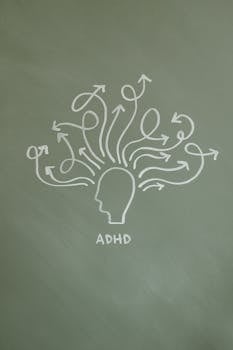What is adult adhd?

What is adult ADHD?
Adult Attention-Deficit/Hyperactivity Disorder (ADHD) is a condition that affects many adults today. It can significantly impact productivity, relationships, and overall quality of life. Understanding adult ADHD is essential for individuals who suspect they might have it or know someone who does. Let’s explore what adult ADHD is, its prevalence, symptoms, diagnosis, and management strategies.
Understanding Adult ADHD
Adult ADHD is a mental health disorder characterized by persistent issues with focus, hyperactivity, and impulsivity. Unlike childhood ADHD, which is often diagnosed in younger individuals, adult ADHD can go unnoticed for years. Many adults who have ADHD may not have received a diagnosis in childhood, leading to challenges that can affect various aspects of their lives.
What is Adult ADHD?
Adult ADHD encompasses a range of symptoms that can affect day-to-day functioning. It’s not just a childhood disorder that individuals “grow out of.” Instead, the symptoms can manifest differently as a person matures. Adults might struggle with attention, organization, and managing time effectively. This can lead to feelings of frustration, low self-esteem, and difficulties in professional and personal relationships.
To learn more about the nuances of adult ADHD, you can refer to the NIMH overview.
Prevalence of Adult ADHD
Statistics indicate that adult ADHD affects approximately 4.4% of adults in the United States. However, many cases go undiagnosed due to misconceptions about the disorder. Some people believe ADHD only affects children, or they may think that adults should be able to manage symptoms more effectively. These misconceptions can prevent individuals from seeking the help they need.
The Impact of Misunderstandings
Misunderstanding the prevalence and symptoms of adult ADHD can lead to misdiagnosis or no diagnosis at all. This lack of awareness can perpetuate struggles in work, relationships, and self-management. For more information about common misconceptions, visit CDC’s ADHD overview.
Symptoms and Diagnosis
Recognizing the symptoms of adult ADHD is crucial for diagnosis and effective management. Symptoms can vary widely among individuals but generally fall into three categories: inattention, hyperactivity, and impulsivity.
Common Symptoms of Adult ADHD
Some common symptoms include:
- Inattention: Difficulty focusing on tasks, organizing activities, and following through on projects.
- Hyperactivity: Restlessness, feeling the need to move constantly, and difficulty sitting still.
- Impulsivity: Making decisions without considering the consequences and interrupting others during conversations.
These symptoms can create difficulties in both personal and professional settings. For a deeper look at the symptoms of adult ADHD, the Mayo Clinic provides an extensive list.
How is Adult ADHD Diagnosed?
Diagnosing adult ADHD involves several steps:
- Self-Assessment: Individuals may begin by reflecting on their symptoms and how those symptoms impact their daily lives.
- Professional Evaluation: A healthcare professional will conduct interviews, behavioral assessments, and checklists to evaluate the symptoms against established criteria.
- Medical History: The doctor will review the individual’s medical history to rule out other conditions that may mimic ADHD symptoms.
This thorough process ensures that individuals receive an accurate diagnosis and appropriate treatment.
Impact of Adult ADHD on Daily Life
Living with adult ADHD can significantly impact various aspects of an individual’s life, including work and relationships.
Effects on Work Productivity
Adults with ADHD may face unique challenges in the workplace. They often struggle with time management, meeting deadlines, and maintaining focus during long or mundane tasks. This can lead to feelings of inadequacy and frustration, resulting in a cycle of underachievement.
For additional insights on how ADHD affects work life, refer to this WebMD article.
Relationships and Social Life
Adult ADHD can also affect personal relationships. Individuals may find it hard to maintain focus during conversations, leading to misunderstandings with friends and family. Impulsivity can cause frustration among loved ones, who might feel disregarded or ignored. Understanding these dynamics is essential for maintaining healthy relationships.
For more information on relationship challenges faced by individuals with ADHD, check out Advanced Psychiatry’s insights.
Management and Treatment Options
Fortunately, there are various strategies and treatments available to help manage adult ADHD effectively.
Behavioral Strategies for Managing Symptoms
Implementing behavioral strategies can significantly improve daily functioning. Some practical tips include:
- Time Management: Utilize tools like planners or digital calendars to keep track of tasks.
- Organizational Skills: Breaking tasks into smaller, manageable steps can help maintain focus and motivation.
- Mindfulness Practices: Techniques such as meditation and deep breathing can aid concentration and reduce impulsivity.
These strategies can be tailored to fit individual needs, making them a valuable part of managing adult ADHD.
Medication and Professional Help
For many, medication is a key component of effective treatment. Stimulants such as methylphenidate and amphetamines are commonly prescribed for adult ADHD. However, it’s essential to work with a healthcare provider to find the right medication and dosage. Behavioral therapy, skills training, and support groups can also provide additional help.
The Cleveland Clinic outlines various treatment options, emphasizing a multimodal approach that combines medication with behavioral strategies.
Conclusion
Adult ADHD is a complex condition that affects many individuals, influencing productivity and relationships. By understanding the symptoms, seeking proper diagnosis, and exploring management strategies, individuals can take significant steps toward improving their quality of life. If you suspect you or someone you know may have adult ADHD, don’t hesitate to seek help. There’s support available, and you don’t have to navigate this journey alone.